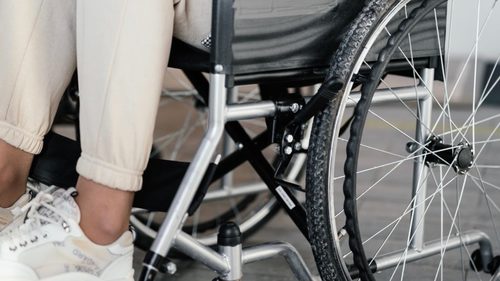Demi Blaauw, a 13-year-old girl who suffered a life-threatening brain haemorrhage as a result of a congenital vascular condition, is regaining her independence a year later thanks to ongoing multidisciplinary support and therapy, as well as the encouragement of her family.
‘Demi’s excellent progress demonstrates what can be achieved for people after a brain injury and is cause for hope for those who suffer a brain bleed or a traumatic head injury,’ says Professor Andre Mochan, a neurologist who practises at Netcare Rehabilitation Hospital.

‘When Demi collapsed out of the blue and was rushed to the hospital, we didn’t know what was happening to her, and at first, they weren’t sure if she would make it. It was an extremely tough time for us,’ recalled her father, Damien Blaauw.
An arteriovenous malformation [AVM], an abnormal bunching of blood vessels, had suddenly burst and begun filling the left hemisphere of her brain with blood, doctors discovered.
The first hospital she was taken to performed surgical management to control the bleeding. Demi was then taken to Netcare Milpark Hospital for additional specialised care.
Endovascular cure of the AVM was performed by interventional radiologist Dr M Valli Omar, and Demi was under the intensive care of neurologist Dr Pradeep Rowji, whom Damien describes to have become Demi’s ‘great friend.’
‘Initially, when Demi came to us at Netcare Rehabilitation Hospital, she was unable to speak and had great difficulty understanding. She was almost completely paralysed on the right side of her body and unable to walk, and the haemorrhage also affected her vision,’ Professor Mochan said.
‘When our daughter arrived at the hospital, there was already a plan in place, starting with assessments, and the genuinely caring team developed a whole therapy plan around her needs. I was blown away; every week we could see the difference in her. Demi pushed on and showed such improvement that her rehabilitation plan needed to be constantly adjusted to keep up with her,’ Damien added.

Demi received intensive, comprehensive therapy from a multidisciplinary team that included a rehabilitation neurologist, psychologist, physiotherapist, speech and occupational therapists, social worker and experienced nursing staff during her hospital stay.
‘Gradually, Demi started to recover her understanding until she was eventually able to form words, and the weakness on the right side of her body began to improve,’ explained Professor Mochan.
‘Since being discharged, she has continued with therapies on an outpatient basis. Demi’s determination is paying off, and her speech and mobility are considerably better. Demi has come such a long way in the past year, and we foresee that she will continue to make progress.’
‘My daughter is a very determined individual, and she won’t allow the situation to sideline her even though she’s had this big setback,’ said Damien.
A patient’s successful return to their home after rehabilitation is an internationally recognised measure of the success of a physical rehabilitation programme. In the year October 2021 – September 2022, 89.7% of patients admitted to Netcare Rehabilitation Hospital with a head injury were discharged home.
‘Demi has started at her new school and exceeded her teachers’ expectations of the progress a child can make after a brain haemorrhage injury. Demi developed such a close relationship with the rehabilitation therapists that when we do the exercises with her at home, she gets a little impatient with us sometimes,’ her father says, laughing.
‘With the correct medical attention and therapy from the start, neurological rehabilitation can help to lessen the physical and cognitive deficits associated with brain injury, making a great difference to the person’s functionality, confidence and quality of life. For the individual and their family, each step towards a greater degree of independence is hugely significant,’ Professor Mochan concludes.
On 24 March, Netcare Rehabilitation Hospital hosted a virtual head injury awareness event for health professionals highlighting survivors’ journeys and the role of multidisciplinary teamwork in ensuring the best possible outcomes for each person in a caring, family-centred approach to rehabilitation.
Written for Cape Etc.
ALSO SEE:
Feature Image: Pexels

